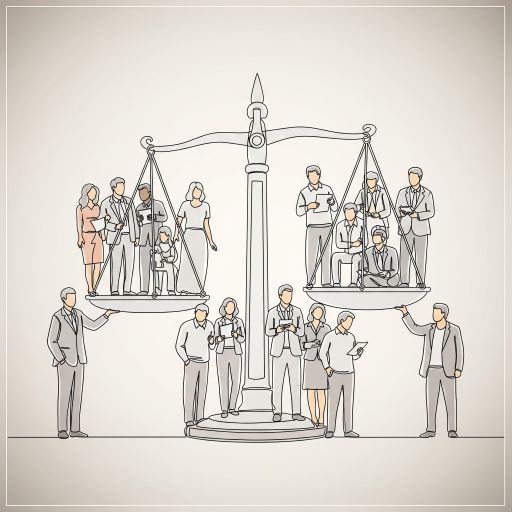Liberty Matters
The Virtuous Selfishness of Caring About Everyone’s Freedom

David’s approach to trans rights, where any personal misgivings or hesitation didn’t compromise the principle of the matter, is emblematic of an essential strain running through much of his thinking. While it’s true he had a profound moral sense of empathy, there was also a rationalist, even selfish grounding for it.
Deeply influenced by F. A. Hayek as David was, it brings to mind a point from The Constitution of Liberty. As Hayek put it, "The benefits I derive from freedom are thus largely the result of the uses of freedom by others, and mostly of those uses of freedom that I could never avail myself of. It is therefore not necessarily freedom that I can exercise myself that is most important for me."
Supporting the rights of others wasn’t just a nice moral gesture. Rather, it was the bedrock of the kind of world David wanted to live in. It was no mere altruism (and he was enough of an Ayn Rand fan to bristle at that), an act of noble self-sacrifice purely for the benefit of others. It was also rational self-interest, thus there is no conflict.
Take, for example, marriage equality. He fought for it, making no small contribution to its eventual victory. But he and his partner never availed themselves of the opportunity. To be sure, that’s a deeply personal decision people might make for all sorts of reasons, and I never asked him why. Instead, he once asked me why my husband and I had opted for it, as in the practical paperwork benefits. It was somewhat amusing, how these things were almost an incidental curiosity, not at all central to why he’d supported it. It was something some people wanted to do, there was no good reason to stop them, and that was more than enough.
Beyond the fact that he was gay, and lived to see radical progress on that score, David would readily acknowledge his life was one of relative comfort. An upper-middle class professional, decidedly bourgeois, from a family of successful lawyers back home in Kentucky, including an uncle who had been a congressman. White, male, well-educated, and perhaps the biggest privilege of all, an American. There were few if any things in life he wanted to do and couldn’t because it was illegal or he was in any way marginalized. But that wasn’t the point.
One of his most passionate causes was opposition to the war on drugs, though he abstained from anything harder than caffeinated soda. He similarly regarded the repeal of Prohibition as an anniversary to be celebrated as a kind of libertarian holiday; that he was a teetotaler was hardly relevant. Immigration, likewise, was an issue where he had no personal stake in wanting to move to a different country. Nevertheless, it was essential to both the America he wanted to live in and the libertarianism he wanted to advocate.
There was, of course, an economics side to it. He would sometimes remark how the life of business and finance, people he interacted with a lot, held little appeal to him. The same would obviously be true of many other professions, from blue collar to white collar. But the economic freedom of everybody else was essential for his ability to lead the life he wanted, as could only be afforded by the dazzling prosperity of modern free markets.
You saw this in David’s intellectual approach, too. He wasn’t one to shy away from debate, as his discussions with Aaron show. He relished the push and pull of ideas, in his personality as much as his philosophy. Often, the best way to hit it off with David was to argue with him. He’d quickly grow bored and annoyed if he sensed you were simply agreeing with him, and he was genuinely open to being convinced. He didn’t want to “win,” he wanted to come to a better understanding. Nor did he put up any barriers of credentials or status or seniority around who he could learn from.
For David, freedom was a kind of network effect: the more people have the liberty to make choices and pursue their own paths, the better life becomes for everyone. Just as the market thrives on the myriad choices and innovations of individuals, so too do we as social animals thrive when we extend freedom to cultural and personal choices. Variety is the spice of life, so to speak.
Too often, we tend to think about concern for the well-being of others and taking care of yourself as a kind of trade-off. Instead, David knew we should embrace it as an essential part of how you can live your best life. Liberty for all and the individual pursuit of happiness are not just complementary, they’re inseparable.
Copyright and Fair Use Statement
“Liberty Matters” is the copyright of Liberty Fund, Inc. This material is put on line to further the educational goals of Liberty Fund, Inc. These essays and responses may be quoted and otherwise used under “fair use” provisions for educational and academic purposes. To reprint these essays in course booklets requires the prior permission of Liberty Fund, Inc. Please contact oll@libertyfund.org if you have any questions.